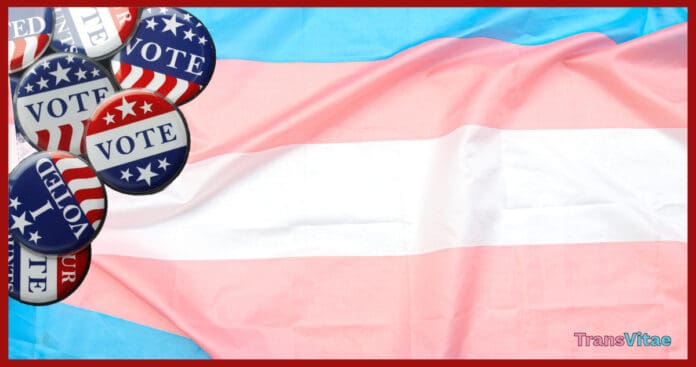In a groundbreaking survey released by GLAAD, the prominent LGBTQ media advocacy organization, findings suggest that political candidates who frequently advocate for restrictions on transgender Americans or show support for policies limiting access to gender-affirming health care may actually be rallying more opposition than support among the public.
This revelation has sparked a conversation among advocates, allies, and the transgender community, emphasizing the shifting tides of public opinion towards more inclusive and supportive attitudes regarding transgender rights and healthcare.
Unpacking GLAAD’s Findings
GLAAD’s survey sheds light on a critical aspect of the ongoing struggle for transgender rights: public perception and its impact on political discourse. As politicians across the spectrum increasingly integrate transgender issues into their platforms, the findings suggest a potential miscalculation by those who take a restrictive stance.
The data underscores a growing consensus among Americans that the rights and healthcare needs of transgender individuals should be protected and supported, not limited or politicized.
The Political Arena: A Double-Edged Sword
For many transgender individuals and their allies, the political arena has become a double-edged sword. On one side, there’s been significant progress with the election of transgender politicians and the passing of inclusive policies in certain states and municipalities.
These successes demonstrate a positive shift towards acceptance and inclusion. However, on the flip side, an increasing number of legislative proposals aim to restrict transgender rights, particularly those of transgender youth, in areas such as sports participation, bathroom access, and, most critically, access to gender-affirming healthcare.
The survey’s findings suggest that candidates who focus on these restrictive policies may be misjudging the electorate’s mood. With public opinion leaning towards support and inclusivity, politicians who choose to campaign on limiting transgender rights might not only find themselves on the wrong side of history but also face electoral repercussions.
The Role of Gender-Affirming Healthcare
Central to the debate around transgender rights is access to gender-affirming healthcare, a vital service that has been under increasing scrutiny and legislative attack. Gender-affirming healthcare encompasses a range of medical and psychological services that support an individual’s gender identity, including hormone therapy, surgical interventions, and mental health support. For many transgender individuals, access to these services is not only life-changing but also life-saving.
The survey by GLAAD highlights a critical point: a significant portion of the American public opposes restrictions on gender-affirming healthcare. This stance isn’t just about politics; it’s about acknowledging the basic human rights and medical needs of transgender people.
By advocating for unrestricted access to these essential services, supporters are championing a cause that goes beyond partisan lines—it’s about compassion, understanding, and respect for individual identity and well-being.
Moving Forward: Advocacy and Action
The GLAAD survey’s implications are clear: the time for advocacy and action is now. For the transgender community and their allies, these findings offer a beacon of hope and a call to mobilize. By continuing to educate the public, engage in meaningful conversations, and challenge discriminatory policies, there’s potential to shift the political landscape towards one that fully embraces and supports transgender rights.
Political candidates from both major parties would do well to heed the survey’s findings. In an era where authenticity and human rights increasingly define political legacies, supporting transgender rights could not only be a moral imperative but a strategic advantage.
Conclusion: A Unified Path Towards Inclusion
As we and our readers reflect on GLAAD’s survey, it’s essential to recognize the power of unity and solidarity in the fight for transgender rights. Despite the difficulties in the path to acceptance and equality, the survey’s findings show a way forward that is characterized by compassion, support, and an unwavering dedication to justice for all, regardless of gender identity.
In the end, the measure of our society’s progress will not be determined by the restrictions we impose, but by the freedoms we uphold and the lives we enrich. The fight goes on for transgender people and the larger LGBTQ community with the knowledge that public opinion is changing in their favor and, with it, the hope for a future where everyone can live authentically and fearlessly.


